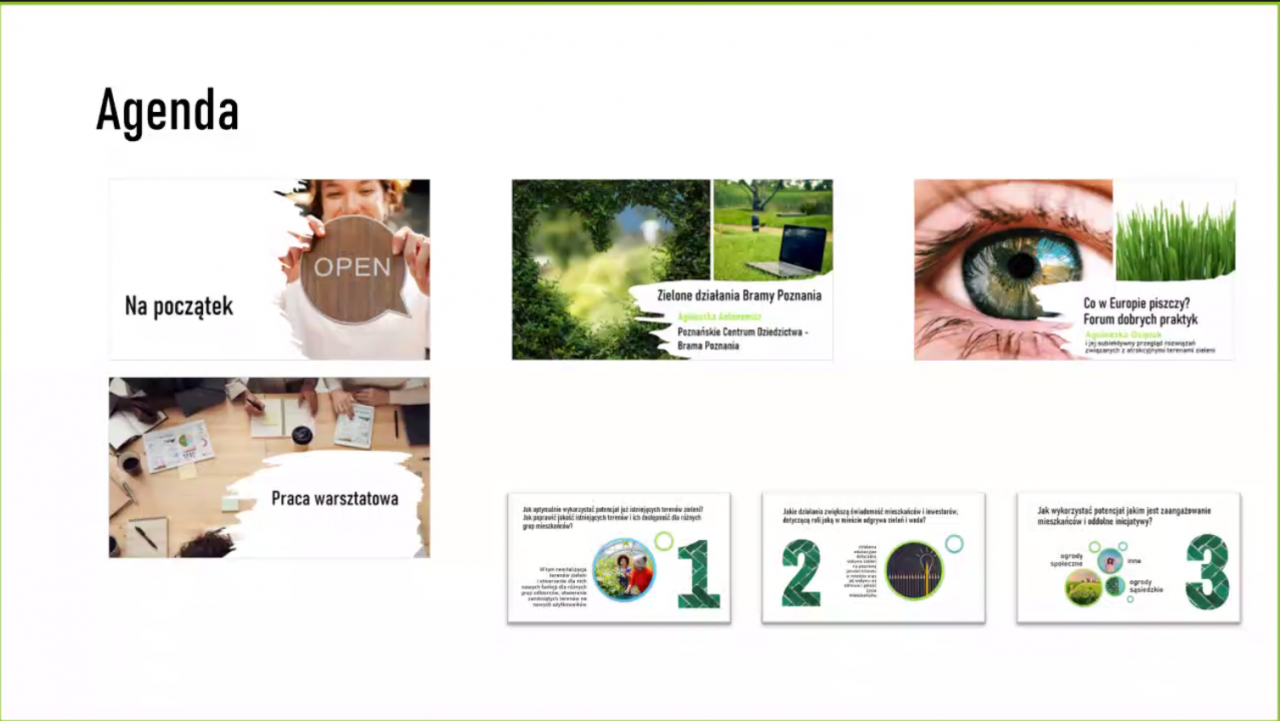
Urbact Local Group in Poznań turned out to be an important platform for cooperation on blue&green infrastructure issues in the City of Poznań. Engagement in reinforcing of the ULG, facilitating meetings and internal communication based on win-win approach is bringing great results.
Urbact Local Group in Poznań, created in the framework of Health & Greenspace project, is quite a large body, with around 50 representatives of 28 different institutions. It consists mainly of public, municipal bodies, which is a result of specific situation of the city, where topics related to greenery refer to many departments and units. This dispersion of tasks related to green areas resulted in less effective management and problems with communication therefore creation of ULG was a great opportunity for these units to join for a common purpose.
In the first stage of the project, ULG became a platform for exchange of information between the municipal units and external stakeholders. Participants had opportunity to present themselves and talk about their good practice, so the group could share equal access to information. It was repeatedly underlined that participants appreciate very much this possibility to just meet and talk, as outside of the ULG there weren’t many other possibilities to exchange information.
In the second stage, it was possible to organize brainstorming workshops where stakeholders discussed city’s potential, ongoing problems, goals and possible actions. There was a lot of enthusiasm and engagement even though the meetings took place on-line, due to the pandemic and the results of these workshops were very impressive.
Also, in the result of these meetings, participants could from now on, easily recognize “green ambassadors” from each unit and department, which became very useful in everyday work. Some networking already began between the stakeholders – Municipal Forests consulted with Senior Initiative Centre designing forest tracks for seniors, Aquanet (water management unit) offered collaboration with other departments on small water retention solutions in the city (rain gardens), some units began regular internal thematic meetings related to the process of decision making (concerning terms of investments).
Last but not least, participants of the group underline the necessity of continuing cooperation after the end of the project, in some form. Therefore, one of the planned actions in developed Action Plan is creating some kind of a platform for cooperation and networking, addressed to municipal units and the topic of greenery.
Katarzyna Bogdańska-Głuchowska, Poznań ULG Coordinator, Project Coordination and Urban Regeneration Office, City of Poznań

